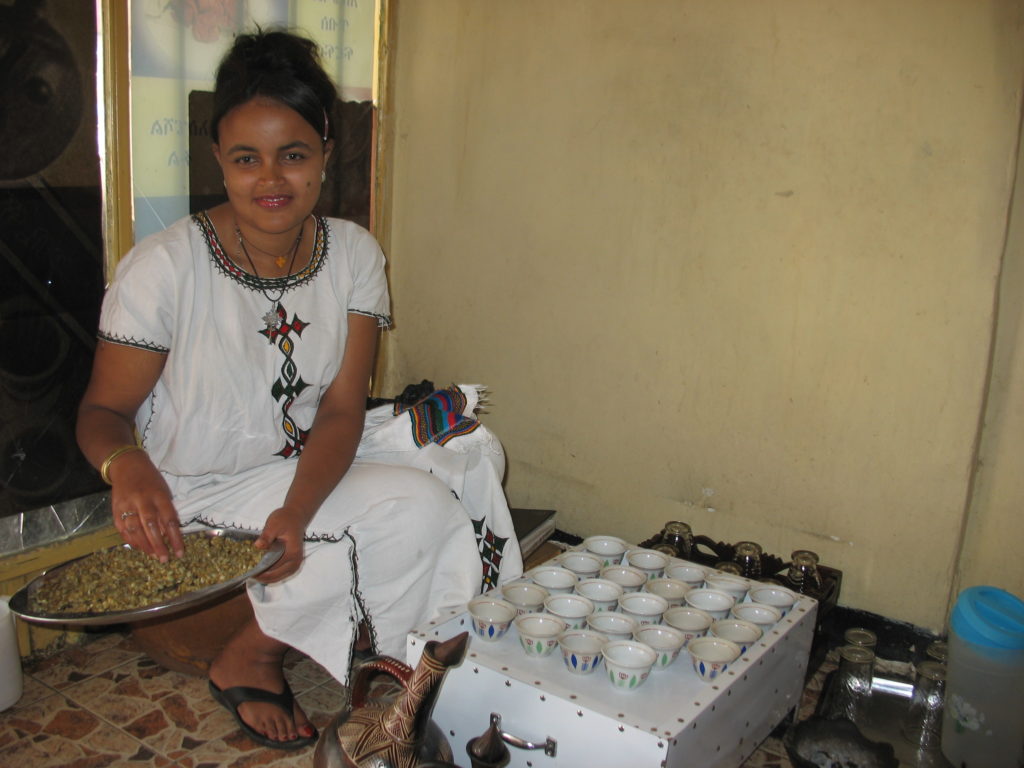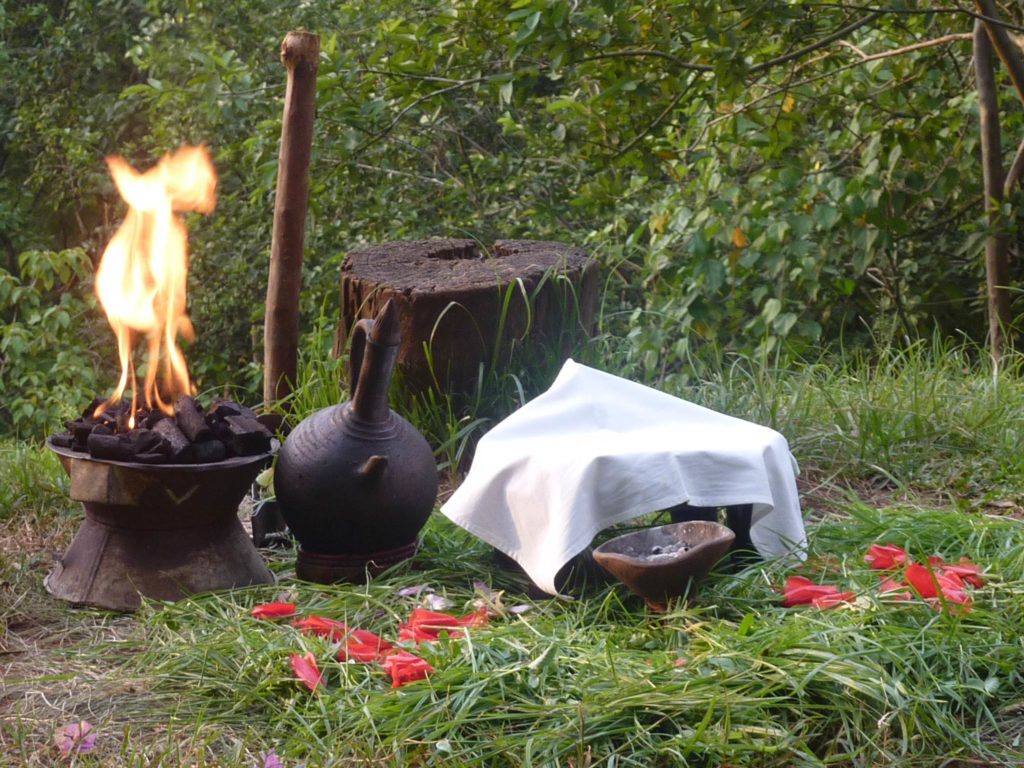Addis Ababa may be the heart of Ethiopia, but coffee is its lifeline. The coffee-drinking ceremony is a daily ritual on the streets and in homes, and it trumps instant granules and pods by far.
Elleni Kassaye (26) runs a small coffee shop in the Haya Hulet district, located on the eastern part of the sprawling capital. She wears her Ethiopian heritage with grace, translating it into her establishment and its array of beverages and foods. Elleni’s specialty is jebena buna, a coffee prepared in a clay pot, with a wide round bottom that leads up to a long, narrow spout with a handle. Like the mothers and grandmothers of many generations before her, she is wearing a traditional white dress with a colourful woven border.
I watch Elleni as she slowly stirs a pan of beans over a flame while aromas of frankincense float across the room, which has grass spread on it to add to a relaxed ambience. She waits patiently for the beans to change to a darker colour. The café is packed with people both young and old, chatting, laughing, gossiping, and discussing news. Ellen continues stirring and shaking the pan back and forth so that the beans don’t burn. As they start to pop, she removes them from the heat and passes them around for the customers to inhale the aroma.

While still warm, she grinds the beans into a powder with a mortar and pestle and places them in the jebena (clay pot) that contains boiled water. The pot sits over the fire for a while, before Elleni starts pouring it from high up into small cups. Pouring a thin stream of coffee into each little cup without spilling requires skill and experience, and Elleni does it gracefully. She serves the small cups to us with sugar and popcorn on the side to complement the coffee.
While jebena buna is most often enjoyed black, some have it with sugar to tone down the bitter taste. Though most of Elleni’s customers often drink the first brew and leave, the coffee-drinking ceremony in Ethiopia consists of three rounds. The first cup, called abol, happens to be the strongest one. The second brew, called tona, is slightly less strong, and the third, baraka, which means “blessing”, is mildest in flavour.

Ethiopia is often described by historians as the birthplace of coffee. According to legend, inhabitants of the Kaffa province were the first to discover the value of coffee as a stimulating beverage. Coffee shops are booming and have become a major fixture in Addis Ababa’s urban landscape. Sisay Alemayehu, a barista at Mankira Café in Piassa, says that people are increasingly opting for jebena coffee because of their superior flavour and the opportunity to watch the cycle of coffee preparation.
Today, more than 60% of Ethiopia’s foreign exchange income derives from coffee exports and an estimated 15 million Ethiopians depend on the livelihood from the production, processing, trade, and transport of coffee. Ethiopians drink about half of all the coffee they produce, preparing and serving it in elaborate rituals that are as popular as ever.
With the introduction of the espresso machines during the Italian occupation of the late 1930s, new methods were adopted. The macchiato, locally spelled ‘makyato’, a creamy, delicate balance of coffee and milk, and spris, a layered mix of coffee and tea became very popular, if not more popular than jebena coffee. Ethiopians also acquired the habit of drinking coffee with sugar around this time. Before this, coffee was served with salt, cardamom or butter.
Addis’s jebena coffee shops boast old-fashioned goodness, but there are plenty of contemporary cafés around to cater for different tastes. “Let’s go get coffee” is a line that never gets old around here; it’s a routine that we look forward to daily. If there’s one thing I’m sure of, it’s this: the city is unlikely to end its love affair with coffee anytime soon.
From the countless number of coffee shops around, these are my favourites:
Tomoca, the city’s most famous café, started roasting beans in 1953. It’s located off Churchill Road, Addis’s main shopping district. Some say it is touristy and expensive, but the coffee is as good as you will find anywhere.
Mokarar, located on Semien Hotel Road, is famous for its unique style of coffee and down-to-earth vibe.
Café Choche is in the century-old railway station, La Gare. This coffee shop is making a name for itself with the quality of its beans. Expect to pay10 birr ($0.54) for a cup.
The 20-year-old Robera Coffee Gallery is located in the Gerji area near the Mexican embassy. It’s a cosy place to hang out with friends. The beans are roasted daily in the big roaster out front, filling the air with irresistible aromas. A cup of good, earthy coffee costs $0.42.
Arefaynie Fantahun is a blogger based in Addis Ababa. Follow his posts on fashion, art, travel and photography here.
Comments are closed.